Immersive Learning
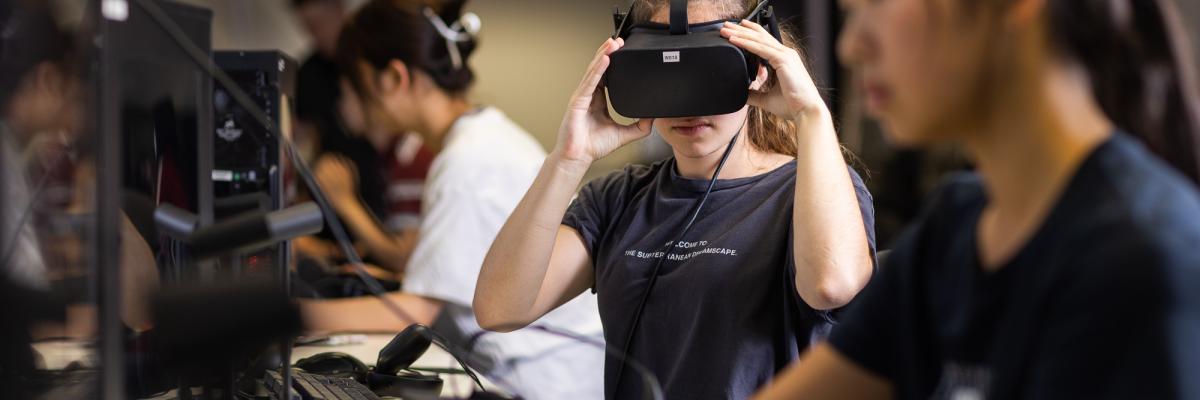
Forging and supporting careers of the future.
Prepare for an exciting career in a field of work that is growing exponentially. Industry and business are clamouring for graduates with the expertise to lead them into the future in fulfilling roles that are both creative and technical. You’ll develop practical skills that cover every aspect of a project from start to finish.
Uniquely, when you study within our Bachelor of Media or Masters of Immersive Media Technology programs, you not only have the opportunity to learn directly from our Realities Extended staff, you also have the possibility of joining the unit as you study.
The Immersive Media industry is waiting for you.
How to study immersive media
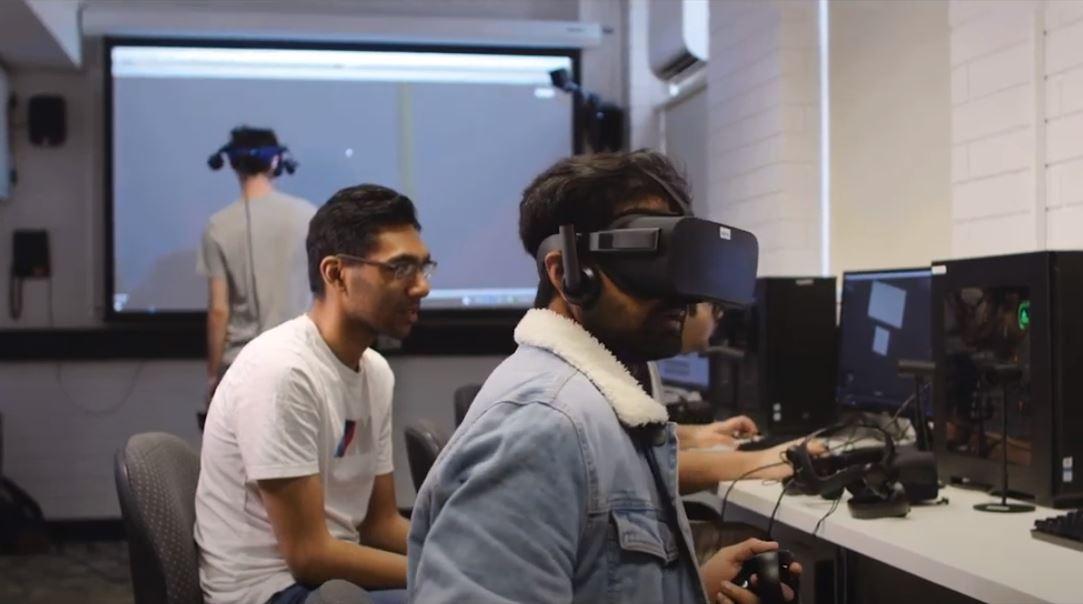
You could opt for a Bachelor of Media (Immersive Media).
As an Immersive Media student you will:
- gain broad knowledge and understanding of the media industry and digital storytelling
- build a suite of VR, AR and MR creative and technical skills
- develop a firm grasp of gaming theory, history and production - you will learn about the technical aspects (art, coding differences, restrictions), the business side (corporate structures, cost of develop then and now, comparative elements) and the social implications (gender bias and demographics throughout modern history).
- learn about asset generation including 3D Modelling, Rigging/Animation, Digital Sculpting, PolyEdits and Texturing
- work with high-quality technology
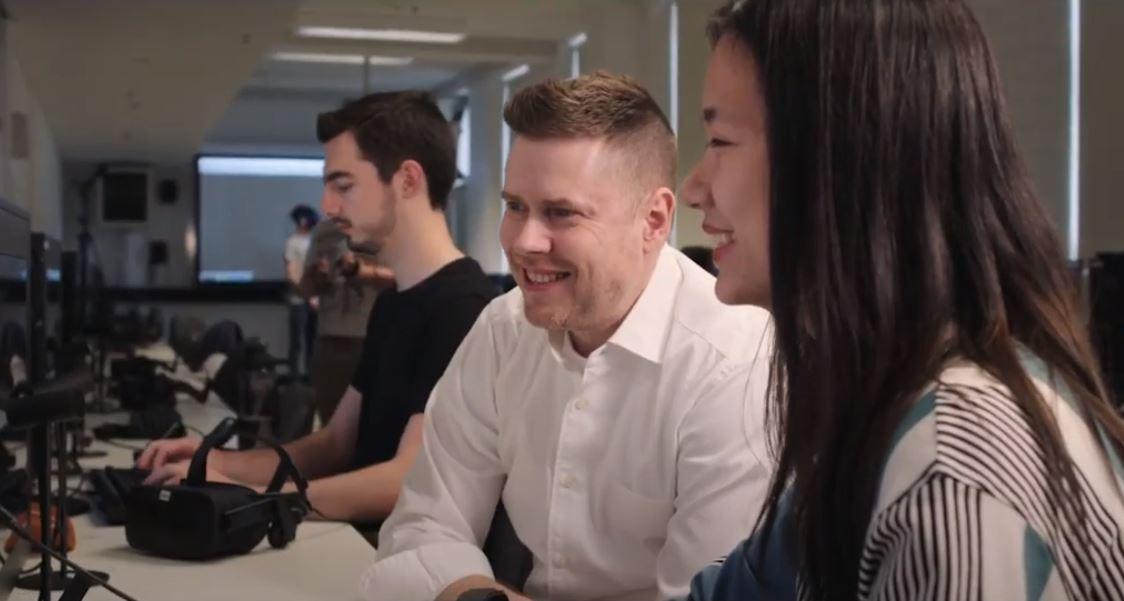
Unlike other universities, we cover all elements in the one course so you learn end to end development. Visit Course Planner and search for MDIA 2223 Virtual Reality Design and Development and take this unique course as an elective in any of these undergraduate degrees:
Bachelor of Arts, Bachelor of Computer Science, Bachelor of Computer Science (Advanced), Bachelor of Creative Arts, Bachelor of Innovation and Entrepreneurship, Bachelor of Media with Bachelor of Arts, Bachelor of Media with Computer Science
Considering a career change? You can still begin as a postgraduate, or add on to your existing knowledge with these degrees:
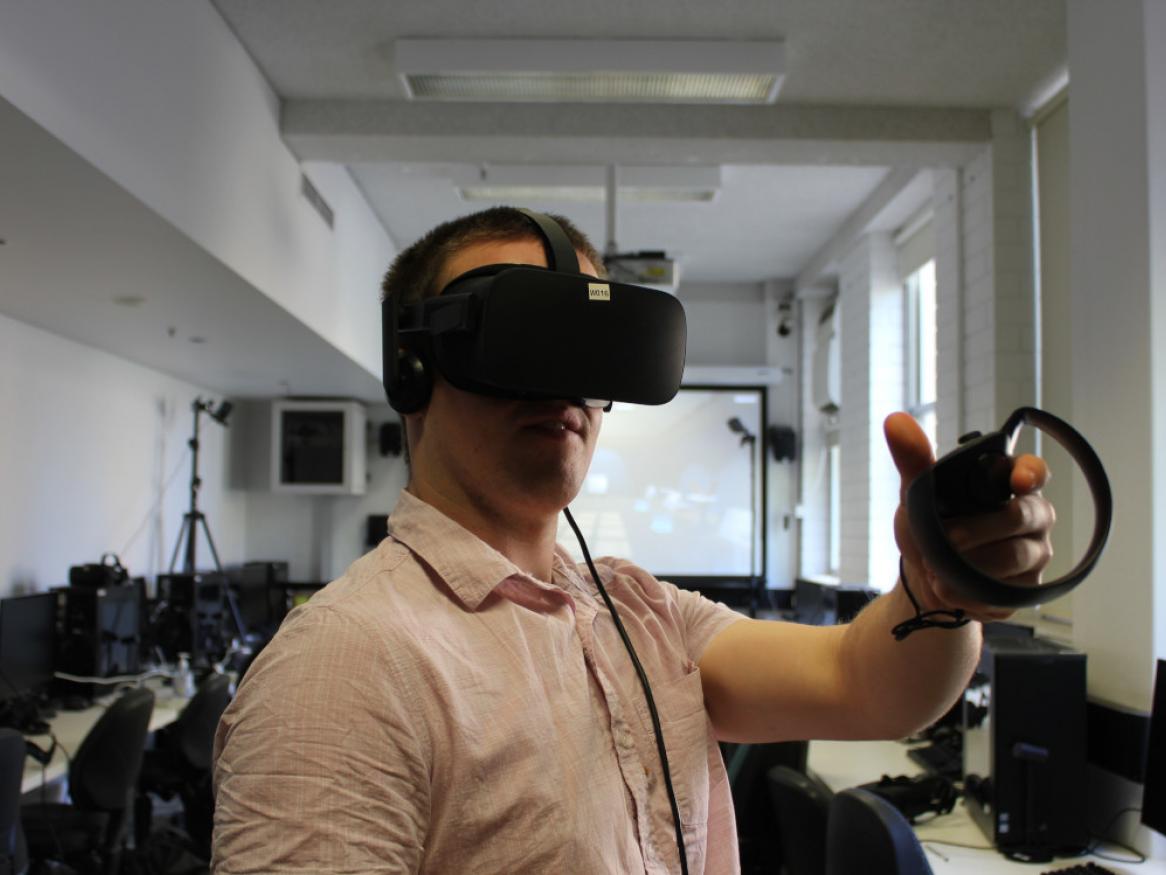
Callum Smith
Over the last year I was invited to assist Steve Cook, our lecturer, to assist in a range of projects directed by him and alongside some fellow students. It felt like a tremendous accomplishment to take the skills that I've learned in the VR Design and Development course and applying it on a real project for use in the public realm. Having been given the opportunity to work directly with the University in the field I am currently studying was a huge feat. The skills taught within the course were directly applied into the pipeline system we worked within. Being given the opportunity to work for the business unit within the university is already a beginning to a career. However, using those building blocks of opportunity I hope to continue within the field by being a part of projects that can help shape the future of Virtual Reality. Giving students a test run is one of the best ways to get them prepared for real work.
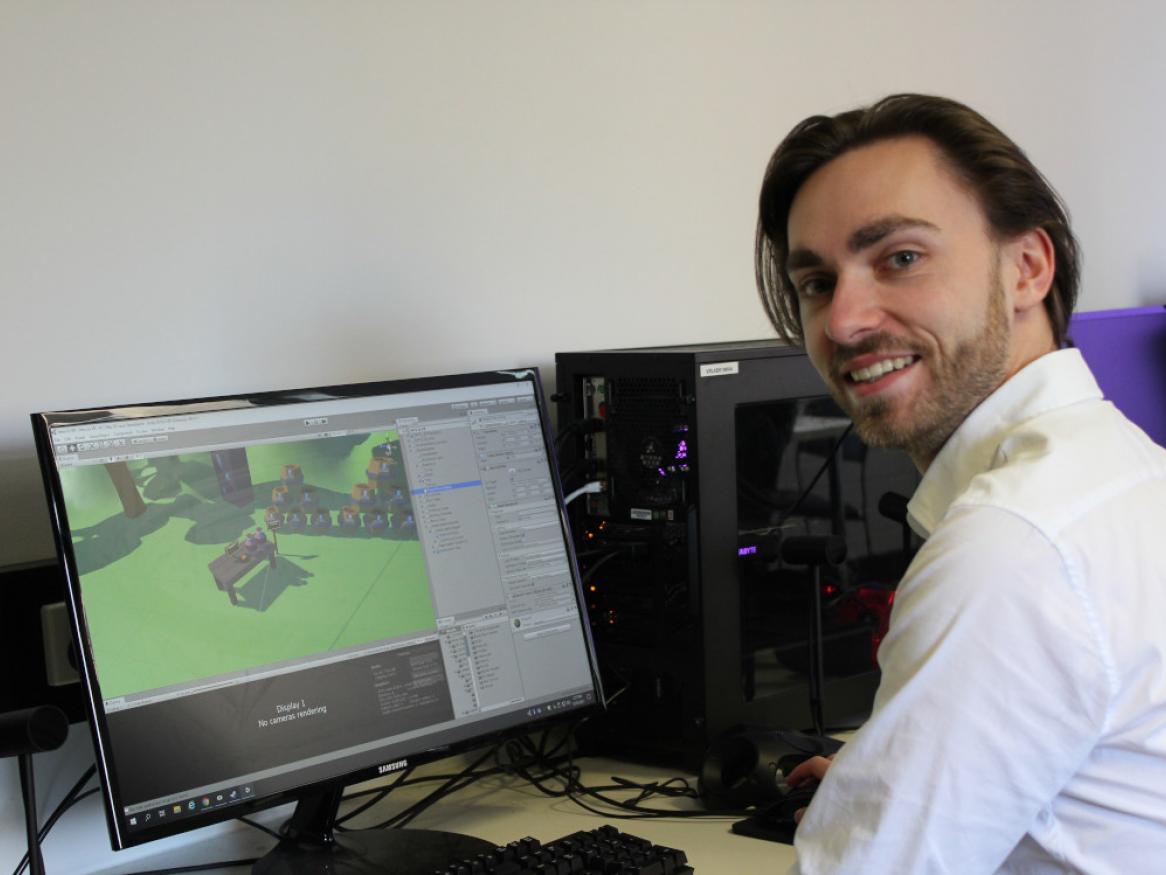
Tristan Castle
In the Virtual Reality and Development course, we've not only learnt fundamental ideas and practices; we've also had some great opportunities to develop projects and create some amazing experiences that look great on a portfolio. I had the opportunity to do an internship along with many projects, both solo and team-based and taking the skills that I've learned to apply it to projects for the Realities Extended Business Unit translated very well as we already had to learn basic work pipelines through the courses. In the future I want to develop VR projects that not only show the power of VR as a way to experience things, but also push the boundaries of VR itself!
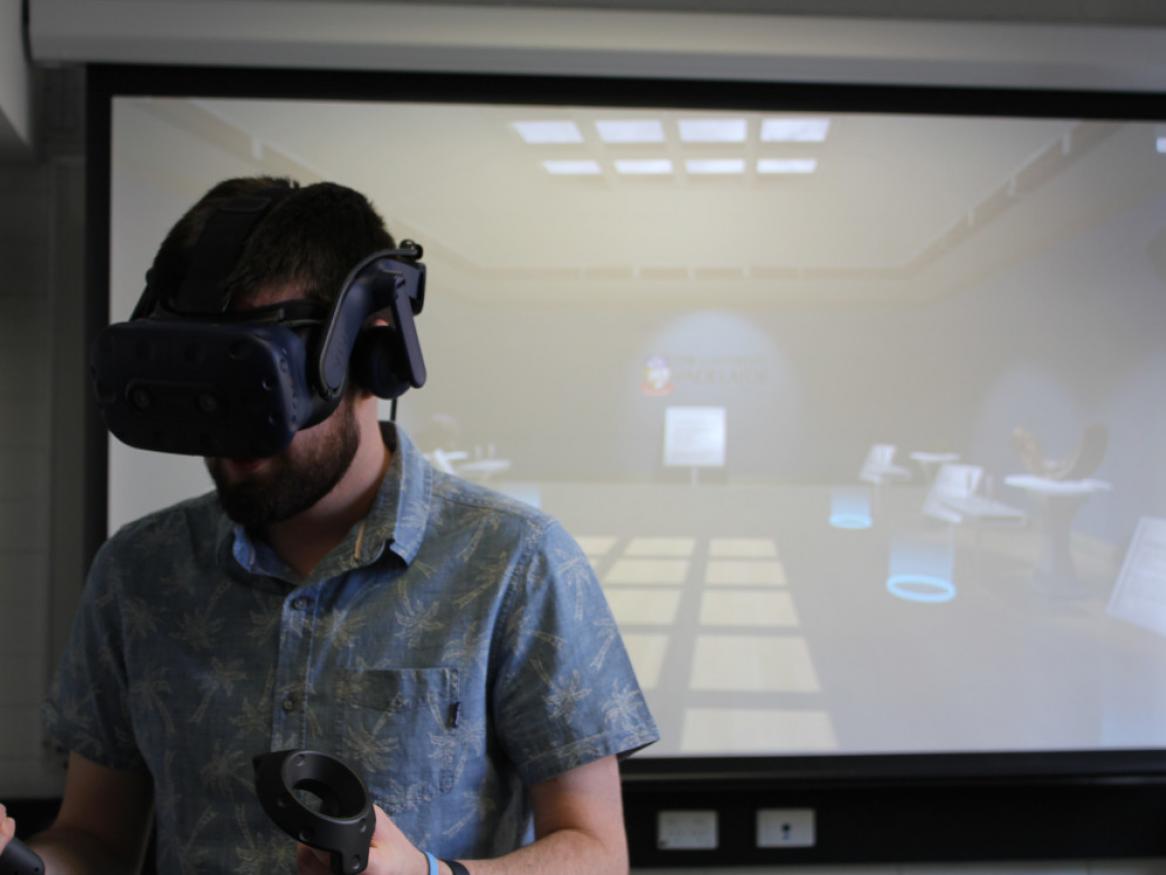
Jordan English
I originally started life at University doing Computer Science by itself, but after completing a few media courses and the two Virtual Reality courses I decided to switch to the Media and Computer Science double degree. Within the Realities Extended Business Unit, I have worked on multiple projects thanks to Steve Cook. We scanned objects using photogrammetry and created Virtual Reality experiences. Taking my skills to the public realm was a great privilege as it was an opportunity not many students are able to get this early on, allowing myself and the team I was apart of to apply the skills learnt from the course into the real world. After working on future professional projects, I hope to be able to work on larger projects where I can build experiences that can help people improve their own personal lives, whether that be teaching them new skills or helping them recover from injuries.
